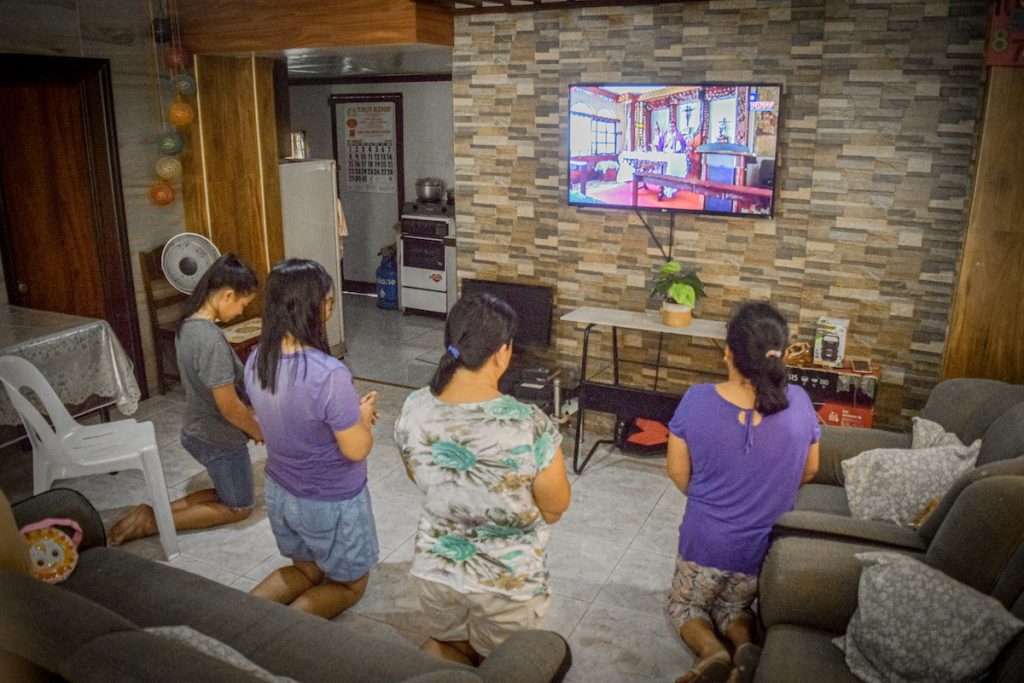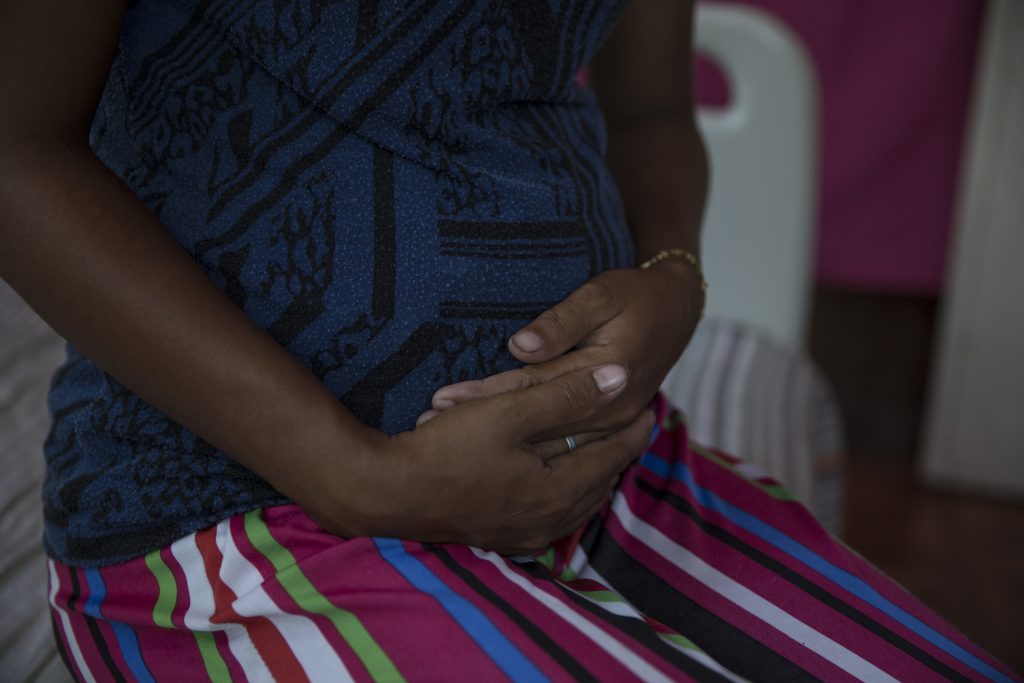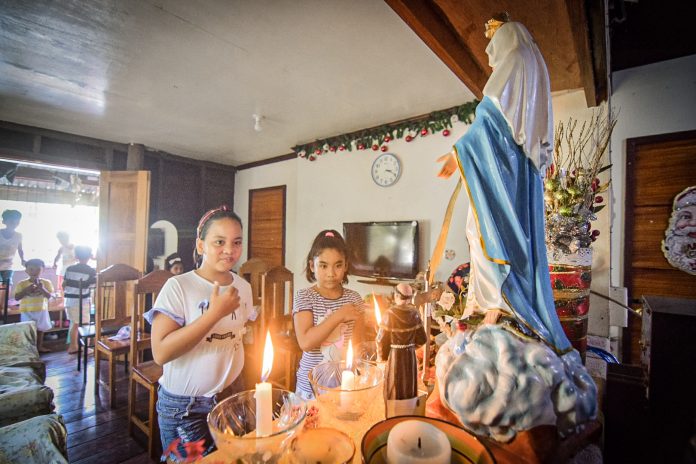Five years after the issuance of the Post-Synodal Pastoral Exhortation on Love in the Family, Pope Francis has declared an “Amoris Laetitia Family” Year to help people “experience the Gospel of the family as a joy that fills hearts and lives” (AL 200).
The commemoration takes place from March 19, 2021, the fifth anniversary of the signing of the document, until June 26, 2022, on the 10th World Meeting of Families in Rome.
Literally translated “the joy of love,” Amoris Laetitia dwells on issues surrounding the family today— in terms of challenges, its vocation, love in marriage, fruitfulness, education of children, spirituality, and pastoral perspectives. The document synthesizes the deliberations of the two special Synods of Bishops on the Family in 2014 and 2015 and thus represents the concerns and outlook of the universal Church with the Holy Father.
It is in this light that Responsible Parenthood and Natural Family Planning are seen as integral to the calling of families. This is summarized in a single paragraph, no. 222 of the document, and explained further in other sections. Fortuitously, the four pastoral guidelines followed by our program on “Responsible Parenthood and All-Natural Family Planning” are also pointed out as key principles in AL 222.
These are: (1) We are Pro-Life as our first principle; (2) We are for Responsible Parenthood as our goal; (3) We are for Natural Family Planning as the means; and (4) We are for helping couples make an Informed and Morally Responsible Choice within the context of a pluralistic society.
I. We are Pro-Life as our first principle.
In the section, “Accompanying the first years of married Life,” the opening sentence of AL 222 states: “The pastoral care of newly-married couples must also involve encouraging them to be generous in bestowing life.” “If the family is the sanctuary of life, the place where life is conceived and cared for,” note Pope Francis and the bishops, “it is a horrendous contradiction when it becomes a place where life is rejected and destroyed” (AL 83).
In unambiguous terms, the bishops say No! To abortion: “So great is the value of human life, and so inalienable the right to life of an innocent child growing in the mother’s womb, that no alleged right to one’s own body can justify a decision to terminate that life, which is an end in itself and which can never be considered the ‘property’ of another human being” (AL 83).
Lately, the RP-ANFP Network has carried out a signature campaign to enlist the Philippines’ support for the Geneva Consensus Declaration, signed by representatives of 34 countries in October 2020. The declaration reaffirms “the dignity and worth of every human person” and that “in no case should abortion be proposed as a method of family planning.” It also points out that “there is no international right to abortion”.

II. We are for Responsible Parenthood as our goal.
Citing St. John Paul II, the document points out that responsible parenthood does not mean “unlimited procreation or lack of awareness of what is involved in rearing children, but rather the empowerment of couples to use their inviolable liberty wisely and responsibly, taking into account social and demographic realities as well as their own situation and legitimate desires” (AL 167).
This empowerment of couples requires the formation of conscience: “Decisions involving responsible parenthood presupposes the formation of conscience, which is ‘the most secret core and sanctuary of a person. There each one is alone with God, whose voice echoes in the depths of the heart’ (Gaudium et Spes, 16)” (AL 222).
Still citing Vatican II, Pope Francis and the Synod Fathers elaborates on the decision of parents: “The couple will make decisions by common counsel and effort. Let them thoughtfully take into account both their own welfare and that of their children, those already born and those which the future may bring. For this accounting they need to reckon with both the material and spiritual conditions of the times as well as their state of life. Finally, they should consult the interests of the family group, of temporal society and of the Church herself. The parents themselves and no one else should ultimately make this judgment in the sight of God” (Italics added, GS 50, in AL 222).
In the light of the declining population growth rates in several countries, the bishops remind couples that “the Creator made man and woman share in the work of his creation and, at the same time, made them instruments of his love, entrusting to them the responsibility for the future of mankind, through the transmission of human life” (AL 81). It is in this light that Church documents use the term “procreation” rather than “reproductive health” to stress the complementary role of parents with the Creator in bringing forth a new human life.
In a distinctively pastoral approach, noting the wide range of concrete situations, the bishops’ reflections encourage couples to “undertake a responsible personal and pastoral discernment of particular cases, one which would recognize that, since ‘the degree of responsibility is not equal in all cases’, the consequences or effects of a rule need not necessarily always be the same” (AL 300).

III. We are for Natural Family Planning as our means.
Pope Francis and the bishops reiterate the previous teaching of the Church on family planning and the use of natural methods. They point out that “family planning fittingly takes place as the result of a consensual dialogue between the spouses, respect for times and considerations of the dignity of the partner. In this sense, the teaching of the Encyclical Humanae Vitae and the Apostolic Exhortation Familiaris Consortio ought to be taken up anew in order to counter a mentality that is often hostile to life” (AL 222).
The bishops point out the rationale for NFP: “The use of methods based on the ‘laws of nature and the incidence of fertility’ (HV 11) are to be promoted since ‘these methods respect the bodies of the spouses, encourage tenderness between them and favour the education of an authentic freedom.’ (Catechism of the Catholic Church, 2370)” (AL 222).
In this light, our RP-ANFP program has made available information on all modern, scientific methods of Natural Family Planning. These include: BBT, BOM, STM, LAM, SDM and TDM (cf. Fig. 1). Over the past 14 years, our All-NFP program in the Archdiocese of Cagayan de Oro has been adopted by more than 28,000 couples! As a simplified method, the Standard Days Method has been widely accepted by more than 40% of these couples. The rest have opted to adopt the other methods, mostly LAM and BOM.
“From the outset, love refuses every impulse to close in on itself;” note the bishops, “it is open to a fruitfulness that draws it beyond itself. Hence no genital act of husband and wife can refuse this meaning” (AL 80). The teaching concludes with a positive note that “children are a wonderful gift from God and a joy for parents and the Church. Through them, the Lord renews the world” (AL 222).
IV. We are for enabling couples to make an Informed and Morally Responsible Choice, according to the dictates of a Right Conscience.
Today we live in a pluralistic society, not only in terms of various religious persuasions but also in the manifold circumstances of daily living. Within this context, families, schools, and churches are called to exert every effort “to encourage the development of an enlightened conscience” (AL 303). “Yet conscience…can also recognize with sincerity and honesty,” the bishops continue, “what for now is the most generous response which can be given to God, and come to see with a certain moral security that it is what God himself is asking amid the concrete complexity of one’s limits, while yet not fully the objective ideal.”
Paraphrasing St. Thomas Aquinas, the Apostolic Exhortation states: “It is true that general rules set forth a good which can never be disregarded or neglected, but in their formulation they cannot provide absolutely for all particular situations” (AL 304). In the same vein, the International Theological Commission has pointed out that “natural law could not be presented as an already established set of rules that impose themselves a priori on the moral subject; rather, it is a source of objective inspiration for the deeply personal process of making decisions” (AL 305).
The Catechism of the Catholic Church mentions some mitigating factors and situations when individuals or couples make a decision: “Imputability and responsibility for an action can be diminished or even nullified by ignorance, inadvertence, duress, fear, habit, inordinate attachments, and other psychological or social factors” (1735, cited in AL 302). In the Philippine setting, one cannot disregard the situation of extreme poverty affecting many families, and the lack of education and moral formation for many couples.
Thus, Amoris Laetitia points out: “It can no longer simply be said that all those in any ‘irregular’ situation are living in a state of mortal sin and are deprived of sanctifying grace” (301). In assessing the sinfulness of any action, it would be helpful to recall the moral theologian’s examination of the various dimensions — namely, the object or act; the intention or motivation; full knowledge and consent; and the circumstances.
On the part of the Church’s Family Life ministry, our role is to provide information on all modern scientific methods of NFP as a pastoral imperative, and to help form, but not force, consciences. Likewise, Pope Francis and the bishops note: “We find it hard to make room for the consciences of the faithful, who very often respond as best they can to the Gospel amid their limitations, and are capable of carrying out their own discernment in complex situations. We have been called to form consciences, not to replace them” (AL 37).

V. Critical Engagement with Government
We have adopted the term, All-NFP, for our program to connote four meanings: (1) to include all modern NFP methods; (2) to reach out to all families in our parishes and chapel communities; (3) to promote NFP all the way, without combining this with contraceptives; and (4) to engage all family-oriented organizations, including government agencies. Government agencies, at the national and local levels, has considerable resources in terms of personnel and budget to also promote natural family planning.
Can we then engage with government in promoting NFP, despite its pronounced emphasis on promoting the use of contraceptives for family planning? Our objectives in this regard would be: (1) to use public funds for the promotion of NFP; (2) to work with government in implementing the provisions in the Responsible Parenthood and Reproductive Health Law that mandates also the promotion of NFP; and (3) to strengthen the government’s own program for NFP.
Indeed, in Cagayan de Oro, the city government has asked the assistance of our archdiocesan RP-ANFP program to provide the teaching manuals for the various NFP methods. At the national level, a member of the RP-ANFP Network has also helped the Commission on Population to publish its manual on NFP. The majority of young couples interviewed would actually prefer NFP, provided they are given adequate information. For this end, government support could accelerate the holding of NFP training seminars and the dissemination of NFP materials.
In this light, we have welcomed the support of government agencies in funding training seminars solely for NFP promotion. CBCP statements in the past have opted for non-collaboration with the government’s contraceptive program. However, with the current law providing a parallel track for NFP promotion, it would be remiss for church organizations not to use government budgets set aside for NFP. If not used, we are told by government officials themselves, this would go for the further promotion of contraceptives.
Nonetheless, it is important that dioceses and church organizations first develop their own viable programs for NFP promotion before entering into a “critical engagement” with government. In this way, they cannot be said to be “used” by government for ulterior motives or that they are using “tainted” funds. On the contrary, they would be using public funds coming from tax payers’ money to address the felt needs of many couples for NFP information as well as for values formation.
Following the same line of reasoning on the morality of using an anti-Covid vaccine “tainted” by the earlier use of an aborted fetus in its production, we could say that any engagement of the church with government on NFP could be considered as material cooperation, not formal cooperation in promoting contraceptives, since our intention is to use public resources solely for NFP promotion. It is also indirect, not direct, cooperation, since one of our objectives is actually to provide an alternative to artificial methods of family planning. And finally, it is remote cooperation, since NFP promotion is done separately from the government’s program for contraceptives.
VI. Key Aspects in the Pastoral Approach of Amoris Laetitia
Critical engagement with government on NFP promotion is just one feature of attending to the needs of couples in marriage situations. We can now try to summarize the distinctive features in the pastoral approach of Amoris Laetitia that apply to the variegated cases of married and unmarried couples, including couples adopting NFP or using other means.
a) GRADUALNESS: Mindful of the difficulties encountered by many couples, Pope Francis and the bishops recall the “law of gradualness” proposed by St. John Paul II, acknowledging that the human being “knows, loves and accomplishes moral good by different stages of growth”. The bishops explain this further: “This is not a ‘gradualness of law’ but rather a gradualness in the prudential exercise of free acts on the part of subjects who are not in a position to understand, appreciate, or fully carry out the objective demands of the law” (AL 295).
b) DISCERNMENT: Pope Francis, in a homily to new cardinals, mentioned two traditional ways of the Church’s reaction to situations of weakness or imperfection: “casting off and reinstating.” He points out that “the Church’s way, from the time of the Council of Jerusalem, has always been the way of Jesus, the way of mercy and reinstatement” (AL 296). Hence, for the Synod Fathers, “the discernment of pastors must always take place ‘by adequately distinguishing’, with an approach which ‘carefully discerns situations’. We know that no ‘easy recipes’ exist” (AL 298). This applies to the discernment of mitigating factors for, in such cases, “a negative judgment about an objective situation does not imply a judgment about the imputability or culpability of the person involved” (AL 302).
c) INTEGRATION; Referring to couples who are divorced or civilly remarried, Pope Francis and the Synod Fathers point out that “the logic of integration is the key to their pastoral care, a care which would allow them not only to realize that they belong to the Church as the Body of Christ, but also to know that they can have a joyful and fruitful experience in it” (AL 299). Would this pertain also to couples in “irregular situations” regarding the adoption of family planning methods?
d) ACCOMPANIMENT: Instead of casting off from the community of the Church, Pope Francis recommends “a process of accompaniment and discernment which guides the faithful to an awareness of their situation before God” (AL 300). The Synod Fathers state: “The Church must accompany with attention and care the weakest of her children, who show signs of a wounded and troubled love, by restoring in them hope and confidence” (AL 291). “Let us not forget,” the Pope adds, “that the Church’s task is often like that of a field hospital.”
e) PASTORAL MERCY: Pope Francis decries the attitudes of some pastors who focus on rules alone: “A pastor cannot feel that it is enough simply to apply moral laws to those living in ‘irregular’ situations, as if they were stones to throw at people’s lives. This would bespeak the closed heart of one used to hiding behind the Church’s teachings” (AL 305). Instead, he emphasizes the “primacy of charity” and that “mercy is the very foundation of the Church’s life;…mercy is the fullness of justice and the most radiant manifestation of God’s truth;…We are called to show mercy because mercy was first shown to us” (AL 310-311).
In summary, Amoris Laetitia offers us a framework and a setting which help us avoid a cold bureaucratic morality….Instead, it sets us in the context of a pastoral discernment filled with merciful love, which is ever ready to understand, forgive, accompany, hope, and above all integrate” (AL 312). All this can also be applied to our ongoing program for Responsible Parenthood and All Natural Family Planning in various parts of the country.
Archbishop Antonio Ledesma, SJ, served as the archbishop of the Metropolitan Archdiocese of Cagayan de Oro from 2006 to 2020.









